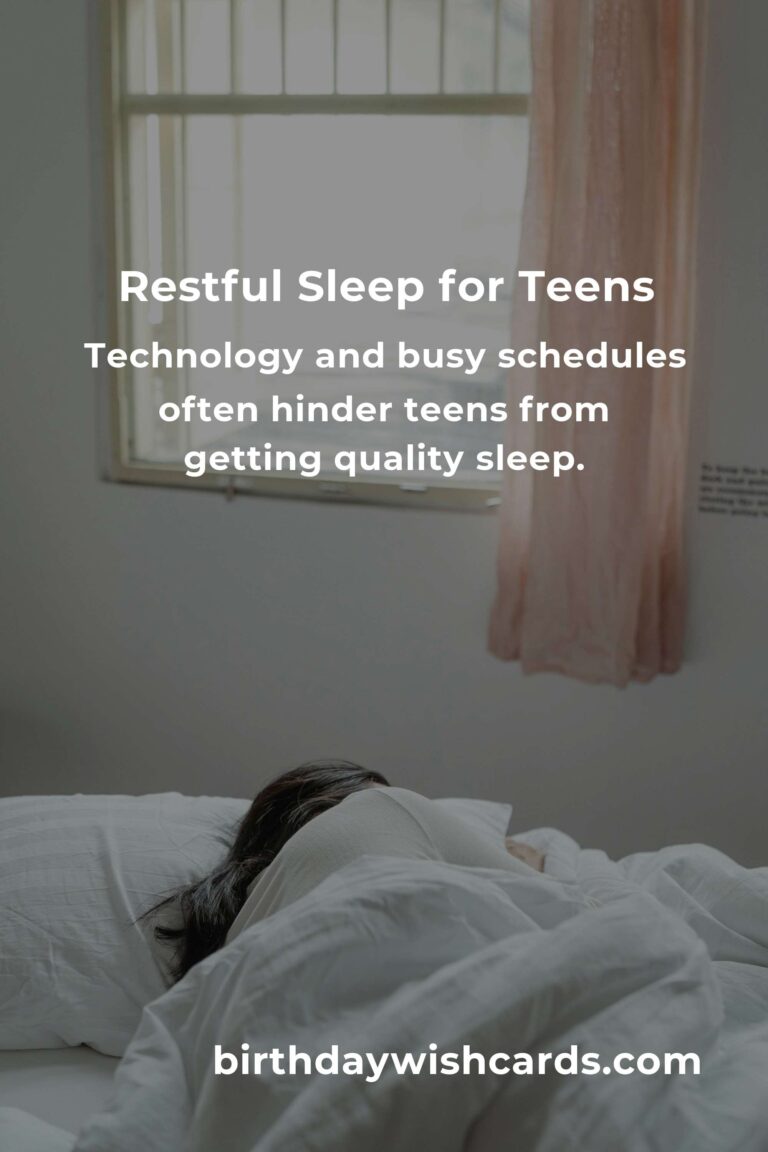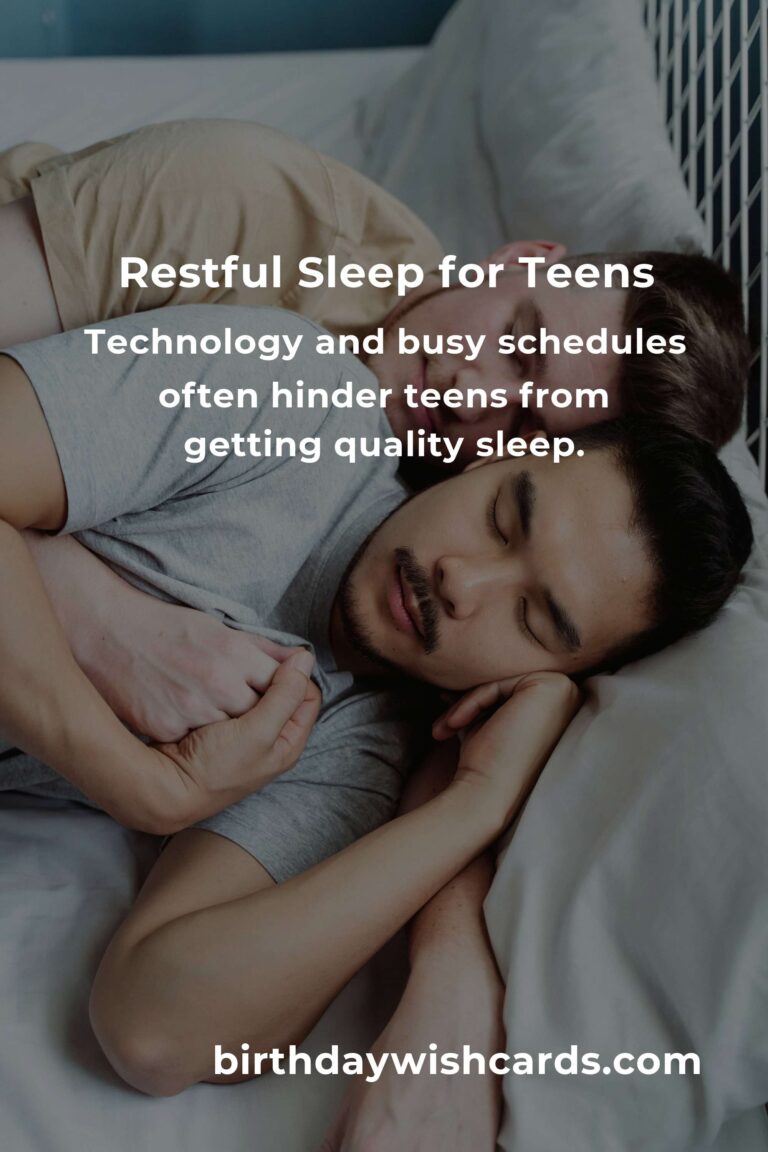
Teenagers today face a whirlwind of challenges—from rigorous academic demands to an endless parade of social media updates. Amid this flurry, a crucial aspect of their well-being often gets overlooked: sleep. We all know how an inadequate night’s rest can affect our mood and productivity, but for teens, the stakes are even higher. Sleep isn’t just about feeling rested; it’s about nurturing a growing mind and body. So, how can we help teens unlock the restful nights they desperately need?
The Importance of Sleep for Teens
Imagine waking up in the morning feeling refreshed and ready to tackle the day. For teens, this might seem like a distant dream, but it’s vital for their health. Sleep plays a pivotal role in physical growth, emotional stability, and cognitive function. During these years, the brain is developing rapidly, and sleep is the time for it to process information and consolidate memories.
Yet, many teens struggle to get the recommended 8-10 hours of sleep. The consequences of sleep deprivation can be severe, affecting everything from academic performance to mental health. Lack of sleep can lead to mood swings, increased stress, and a higher risk for anxiety and depression. It’s a cycle that can be hard to break, but with the right strategies, teens can reclaim their nights.
Understanding the Barriers
Before diving into solutions, it’s important to understand the barriers that prevent teens from getting quality sleep. One major culprit is technology. The blue light emitted by smartphones, tablets, and computers can interfere with the body’s natural sleep-wake cycle. It’s tempting to scroll through social media or text friends late into the night, but this habit can keep teens wired and awake.
Another factor is the busy schedules that teens juggle. Between school, extracurricular activities, and part-time jobs, there often seems to be little time left for sleep. Additionally, the natural shift in a teen’s circadian rhythm can make it difficult for them to fall asleep early, leading to late nights and groggy mornings.
Practical Steps Toward Better Sleep
So, what can be done to improve sleep quality for teens? Here are some actionable steps:
Create a Sleep-Conducive Environment
A bedroom should be a sanctuary for sleep. Encourage teens to make their space comfortable and relaxing. This means reducing clutter, keeping the room cool and dark, and investing in a comfortable mattress and pillows.
Establish a Consistent Sleep Schedule
Help teens set a regular bedtime and wake-up time, even on weekends. Consistency reinforces the body’s natural sleep-wake cycle and can make falling asleep and waking up easier.
Limit Screen Time Before Bed
Encourage a digital detox at least an hour before bedtime. Instead of screens, suggest activities like reading a book, listening to calming music, or practicing relaxation exercises.
Encourage Physical Activity
Regular exercise can help teens fall asleep faster and enjoy deeper sleep. Encourage them to engage in physical activities they enjoy, whether it’s sports, dancing, or a leisurely walk in the park.
Mindful Eating Habits
What teens eat and drink can affect their sleep. Encourage them to avoid caffeine and heavy meals close to bedtime. Instead, suggest a light snack if they’re hungry before bed.
Open Communication and Support
Finally, fostering open communication about sleep struggles can make a significant difference. Encourage teens to talk about their sleep habits and any concerns they may have. Sometimes, knowing they’re supported can alleviate stress and improve sleep.
A Brighter Tomorrow Awaits
Improving sleep quality for teens isn’t just about better nights; it’s about better days, filled with energy, focus, and happiness. By understanding their unique challenges and offering compassionate, practical solutions, we can help them build a foundation for lifelong health and well-being. Let’s empower our teens to take control of their sleep, so they can wake up refreshed and ready to shine.
Sleep is essential for teens’ physical growth and cognitive function.
Technology and busy schedules often hinder teens from getting quality sleep.
Creating a sleep-conducive environment can significantly improve rest.
Consistent sleep schedules and reduced screen time aid in better sleep.
Open communication about sleep struggles provides support and relief.
#TeenSleep #RestfulNights #SleepQuality #HealthyHabits #BrighterTomorrow

